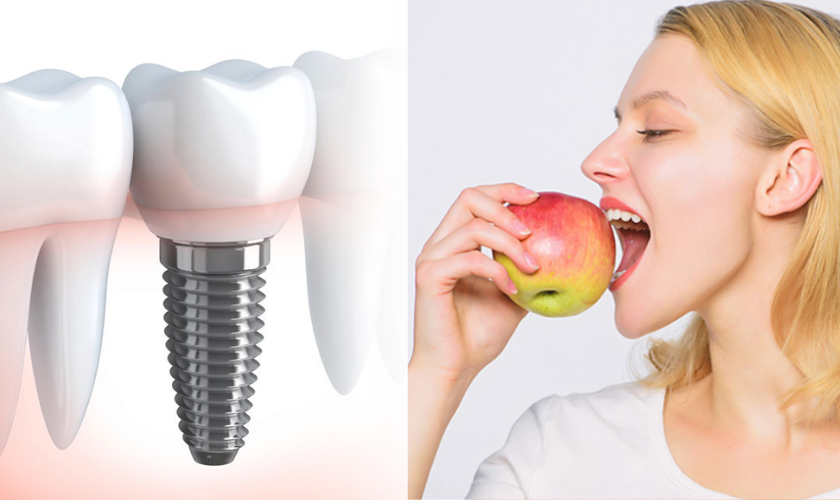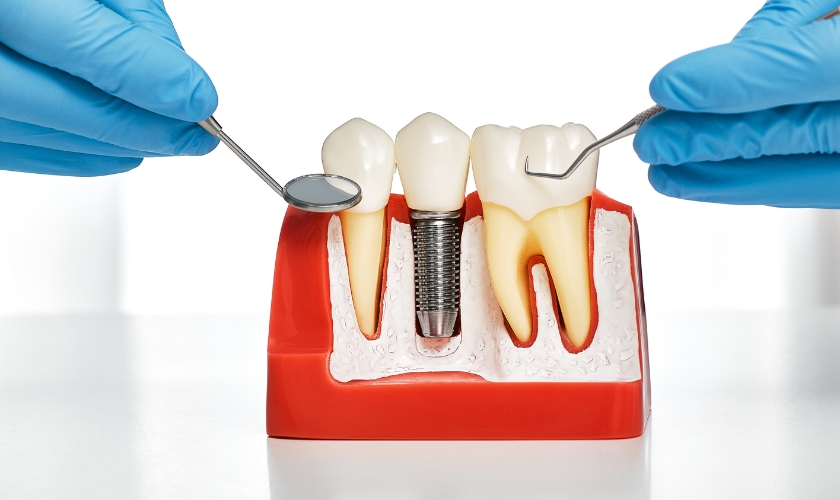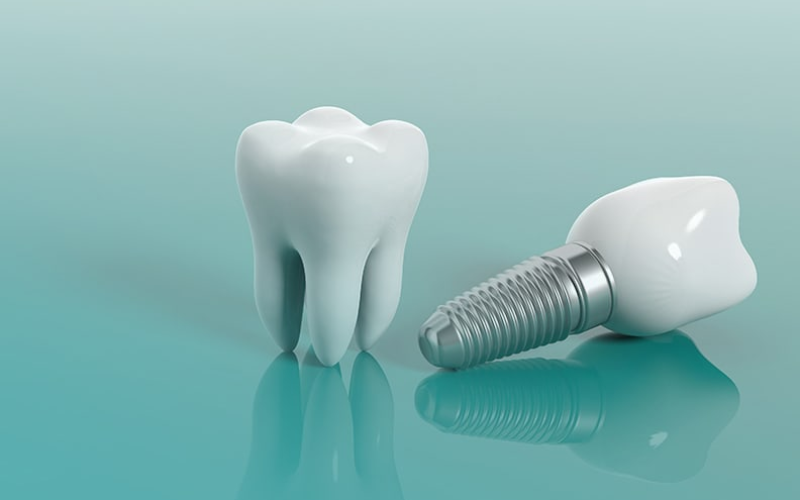4221 Vista Road, Pasadena, TX 77504
What To Eat After Dental Implant Surgery?

What To Eat After Dental Implant Surgery?
Undergoing dental implant surgery is a significant step toward a healthier, more confident smile.
But did you know that what you eat after the procedure plays a crucial role in your recovery?
Choosing the right foods not only aids in healing but also helps you avoid unnecessary discomfort. It’s time to turn the spotlight on your post-surgery diet and discover how you can make this process smoother and more enjoyable.
So, what should you eat after your dental implant surgery?
From soft, soothing options to nutrient-packed choices, your diet can make a big difference in how quickly and comfortably you heal. In this blog, we’ll guide you through the best foods to enjoy, the ones to steer clear of, and tips to help you navigate your meals with ease.
Ready to make your recovery a breeze? Let’s dive into the tasty and healing world of post-surgery nutrition!
Immediate Post-Surgery Diet
The first few days after your dental implant surgery are crucial for recovery. Your diet plays a key role in ensuring that your healing process goes smoothly and comfortably.
- Soft Foods: Start with soft foods that are gentle on your surgical site. This minimizes irritation and helps you avoid unnecessary discomfort. Think of foods like yogurt, applesauce, and mashed potatoes. These options are not only easy to eat but also soothing for your mouth.
- Examples of Soft Foods:
- Yogurt: A great source of protein and calcium, it’s easy on your healing gums.
- Applesauce: Smooth and gentle, perfect for a soothing snack.
- Mashed Potatoes: Soft and comforting, ideal for a filling meal.
- Hydration: Drink plenty of water to stay hydrated and promote healing. Avoid hot beverages as they can increase swelling and discomfort. Opt for cool or room-temperature drinks to keep things comfortable.
Foods to Avoid After Dental Implant Surgery
What you steer clear of is just as important as what you eat. Certain foods can hinder your recovery and complicate the healing process.
- Hard and Crunchy Foods: These can damage the surgical site or disrupt the healing process. Avoid nuts, chips, and hard candies during the initial recovery period.
- Spicy and Acidic Foods: Spices and acids can irritate sensitive areas, increasing discomfort. Steer clear of spicy dishes and acidic fruits like tomatoes and citrus.
- Sticky Foods: Foods like caramel or gum can stick to the implant site, potentially causing issues or making cleaning difficult. Stick to soft, non-sticky options to avoid complications.
Nutrient-Rich Foods for Healing
Incorporating the right nutrients into your diet can significantly aid in your recovery, helping you heal faster and more effectively.
- Protein-Rich Foods: Protein is essential for tissue repair. Include foods like eggs, fish, and lean meats in your diet. These will support healing and maintain your overall strength.
- Vitamins and Minerals: Vitamins A and C are crucial for tissue regeneration. Opt for leafy greens, citrus fruits, and other vitamin-rich foods to boost your healing process.
- Hydration: Continue to focus on drinking plenty of water throughout your recovery. Avoid sugary drinks, as they can contribute to inflammation and discomfort.
Sample Meal Plan for the First Week
Planning your meals can make recovery easier and more manageable. Here’s a sample meal plan to guide you through the first week after surgery.
- Day 1-2: Stick to the softest foods. Start with smoothies, yogurt, and applesauce. These options are gentle and easy to consume, ensuring you get necessary nutrients without discomfort.
- Day 3-4: Begin to introduce slightly firmer foods that are still soft. Try well-cooked pasta, scrambled eggs, and mashed vegetables. These provide a bit more texture while remaining gentle on your healing site.
- Day 5-7: Gradually incorporate more varied, nutrient-rich options. You can include dishes like soft casseroles or well-cooked fish. Continue to avoid hard, crunchy, or sticky foods.
Tips for Eating Comfortably
Making mealtimes comfortable is key to a smooth recovery. Here are some tips to help you eat with ease.
- Chewing Techniques: To minimize discomfort, try chewing on the opposite side of your mouth from where the implants were placed. This can help avoid putting pressure on sensitive areas.
- Food Preparation: Prepare your food in ways that make it easier to eat. Blend, mash, or puree foods to ensure they are soft and manageable. This can make eating more comfortable and less painful.
Consulting Your Dentist
Keeping in touch with your dentist Pasadena ensures that your recovery stays on track and any potential issues are addressed promptly.
- When to Reach Out: Contact your dentist if you experience unusual pain, swelling, or issues with your diet. Prompt communication can prevent complications and address any concerns early.
- Follow-Up Appointments: Attend all scheduled follow-up appointments. These visits allow your dentist to monitor your healing progress and make any necessary adjustments to your care plan.
Navigating your diet after dental implant surgery can be a smooth journey with the right approach. By choosing soft, nutrient-rich foods and avoiding irritants, you’ll support your healing process and ease any discomfort. Remember, your diet plays a crucial role in your recovery, so prioritize what you eat and stay hydrated. If you have any concerns or experience unusual symptoms, don’t hesitate to consult your dentist. With careful planning and attention, you’ll be back to enjoying your favorite foods in no time!


